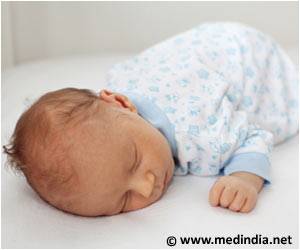
Experts don’t know which babies are at risk for SIDS or what causes it. As a result, parents of infants who die from unexplained causes are often the focus of suspicion, which can make the parents feel even more guilty and bereaved than they already do.
The findings, published in The Lancet’s eBioMedicine, showed BChE levels were significantly lower in babies who subsequently died of SIDS compared to living controls and other infant deaths.
However, according to Rachel Moon, a researcher studying SIDS at the University of Virginia, the surge in interest around the study is understandable, but isn’t warranted, The Verge reported.
“There is nothing definitive about this at all,” Moon was quoted as saying.
She noted that the study was very small – it included blood samples from 67 infants who died and 10 who survived.
Moon said the study finding doesn’t necessarily prove that the enzyme is responsible for SIDS or has a role in an infant’s death.
And even though there was a statistical difference between the levels of the enzyme between the two groups of infants, there was overlap between them. That would make it hard to design an accurate blood test to check if an infant had levels of the enzyme linked with SIDS, Moon said.
READ RELATED: Monkeypox latest: Experts warn spread may become global as 2 more countries announce cases
Dr. Gabrina Dixon, director of advancing diversity in academic pediatrics at Children’s National in Washington, said the study was interesting, CNN reported.
“But, I wouldn’t call it a thing yet. It could be promising for future research, but it’s such a small number of kids in this study, you need a lot more numbers to say that this is what it is.”
First Candle, a national organization focused on eliminating sleep-related infant deaths and supporting families, welcomed the research but also urged caution.
“This is progress, and for that we should be optimistic, but it’s not the entire answer,” CEO Alison Jacobson said in a statement. “Our concern with the development of a test for the vulnerability to SIDS is with parents having a false sense of security and adopting unsafe sleep practices.”
Source: IANS
Source:






